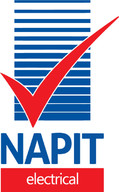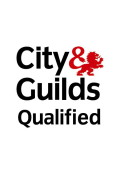What Is An EICR?
An Electrical Installation Condition Report (aka Periodic Inspection Report) is a document which assesses any issues impairing the safety of an electrical installation. Specifically, the report evaluates the following:
- Safety of persons against the effects of electric shocks and burns
- Protection against damage to property by fire and heat arising from installation defects
- Confirmation that an installation is not damaged or deteriorated so as to impair safety
- Identification of non-compliances or installation defects, which may give rise to danger
Why Do I Need An EICR?
EICR inspection and testing is necessary because all electrical installations deteriorate due to a number of factors such as damage, wear, corrosion, excessive loading, environmental influences and ageing. Consequently, the law requires that electrical installations are maintained in a safe condition and therefore must be periodically inspected and tested. The onus of ensuring compliance resides with the property owner.
Who Will Want To See An EICR?
Licensing authorities, public bodies, insurance companies, mortgage lenders, solicitors and/or others may require you to produce a valid EICR to establish conformance to the requirements of BS 7671 – The IEE Wiring Regulations. If you don’t have appropriate documentation you could encounter serious problems when making an insurance claim or selling your house. You could also face a criminal and/or civil lawsuit in the unfortunate event that someone received an electric shock or injury from your installation.
When Should I Get An EICR?
Typically, EICR’s for domestic installations should be updated every 5-10 years. However, you should get your installation assessed immediately if the following are applicable:
- You do not have valid documentation for the installation
- After alterations or additions to the installation
- If there is any significant change in the electrical loading of the installation
- If damage has been caused to the installation, for example, after flooding
Valid EICR’s are also required for commercial or special installations. The rules are broadly the same as for domestic installations but the reporting frequency is shorter and varies according to usage, public access and type of installation. Additional considerations include:
- On a change of occupancy of the premises (landlords and commercial)
- On a change of use of the premises (landlords and commercial)
How Much Does It Cost?
PIRUS Electrical charges a £100 flat fee for a standard 3-bedroom domestic property. Where remedial works are required we'll subsequently provide a detailed quotation for your consideration. If you engage our services to carry out these works we may, at our discretion, refund the EICR fee in full or part dependent on the size of the job.
For larger domestic properties or commercial concerns our EICR fees will vary according to installation size and complexity.





